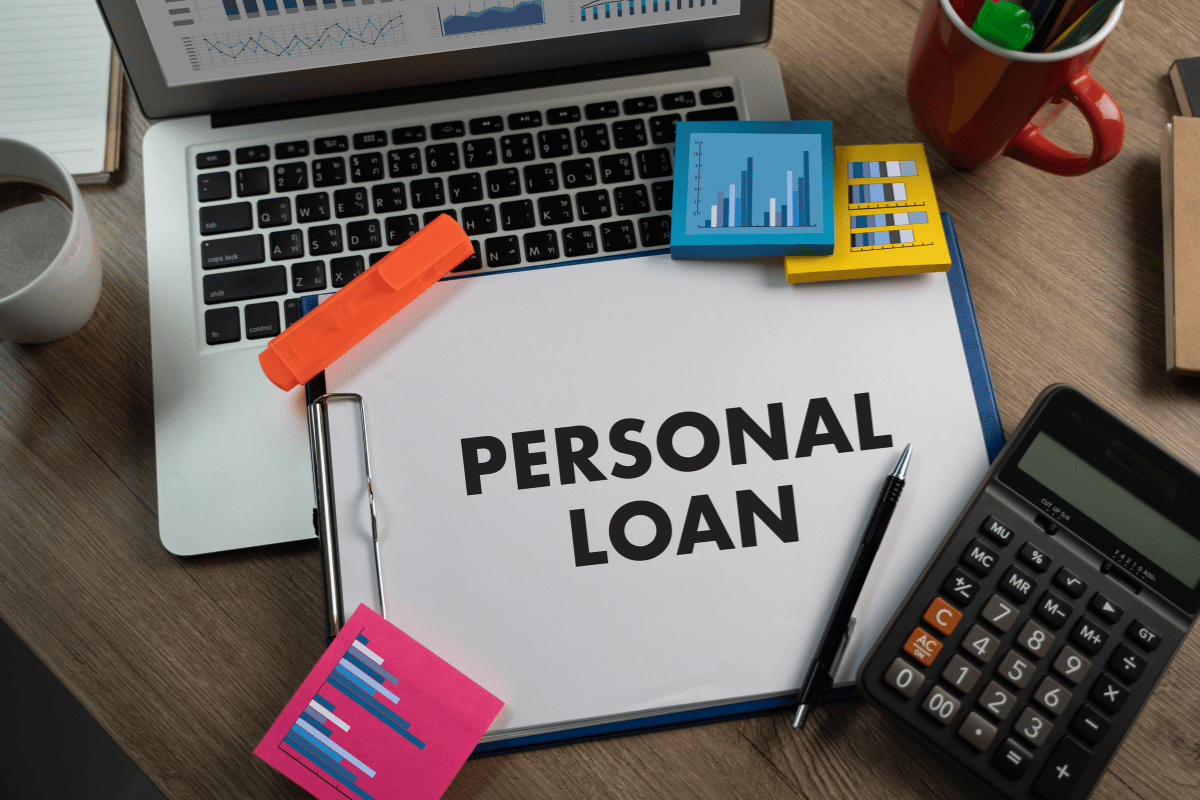
Money matters are never far from the minds of Singaporeans. With the rising cost of living, housing expenses, and the occasional unexpected emergency, it’s not surprising that many people turn to loans for quick financial relief. But when it comes to borrowing, two options often surface in Singapore: personal loans and payday loans.
Both are designed to provide short-term cash flow, yet they differ in important ways that could make one a smarter choice than the other depending on your circumstances. Understanding these differences can save you from unnecessary financial stress later on. Let’s break them down and figure out which option might be right for you.
What Exactly Are Personal Loans in Singapore?
Personal loans are one of the most common credit products offered by banks such as DBS, OCBC, UOB, Standard Chartered, and other financial institutions.
They’re typically unsecured loans, meaning you don’t need to pledge collateral (like your flat or car) to qualify. Loan amounts are usually larger—ranging from a few thousand dollars up to 10 times your monthly salary if you earn at least $120,000 annually.
Key features of personal loans in Singapore:
- Loan amount: From around $1,000 up to six-figure sums, depending on your income and creditworthiness.
- Repayment tenure: Usually from 1 to 7 years, giving borrowers flexibility in spreading out payments.
- Interest rates: Effective interest rates (EIR) usually range from 6% to 9% per year, although promotional rates can sometimes dip lower.
- Eligibility: You’ll need a minimum annual income (often $20,000 to $30,000 for citizens and PRs, higher for foreigners). Your credit score also plays a major role.
In short, personal loans are more structured, long-term financial products meant for larger expenses like medical bills, weddings, home renovations, or debt consolidation.
What Are Payday Loans in Singapore?
Payday loans, on the other hand, are offered by licensed moneylenders regulated by the Ministry of Law (MinLaw). They are designed for short-term borrowing, usually to tide you over until your next pay cheque comes in—hence the name.
Unlike personal loans, payday loans are much smaller in size and must typically be repaid in full within a month.
Key features of payday loans in Singapore:
- Loan amount: For Singapore citizens and PRs earning less than $20,000 annually, the maximum loan is capped at $3,000. If you earn more, you can borrow up to six times your monthly salary.
- Repayment tenure: Usually a month or a few weeks, aligning with your next payday.
- Interest rates: Moneylenders can legally charge up to 4% interest per month—much higher than bank personal loans. Late fees can also apply.
- Eligibility: Income requirements are lower, making payday loans accessible to those who may not qualify for a bank loan.
In essence, payday loans are a quick but expensive way to borrow money when you’re in a tight spot.
The Key Differences at a Glance
Let’s line up personal loans and payday loans side by side:
| Factor | Personal Loans | Payday Loans |
|---|---|---|
| Loan Amount | $1,000 up to 10x monthly income | Up to $3,000 (if earning < $20,000 yearly); up to 6x monthly income otherwise |
| Repayment Term | 1 to 7 years | Usually 1 month |
| Interest Rates | Around 6%–9% annually | Up to 4% monthly (≈ 48% annually if rolled over) |
| Eligibility | Higher income and good credit required | Easier to qualify, even with lower income |
| Best For | Big-ticket expenses, long-term planning | Short-term cash flow gaps |
The Pros and Cons of Personal Loans
Advantages:
- Lower interest rates: Significantly cheaper than payday loans in the long run.
- Larger amounts: Useful for funding bigger life expenses.
- Flexible repayment: Ability to spread payments over years helps with budgeting.
- Credit score building: Timely repayment can boost your credit record with the Credit Bureau Singapore (CBS).
Disadvantages:
- Harder to qualify: Stringent checks on income and credit history mean not everyone is eligible.
- Longer approval times: Applications can take days, though some banks now offer instant approvals for existing customers.
- Potential for over-borrowing: Large sums can tempt borrowers to take on more debt than they truly need.
The Pros and Cons of Payday Loans
Advantages:
- Quick access: Some licensed moneylenders can disburse cash within an hour.
- Low eligibility barriers: Accessible to those with lower income or weaker credit.
- Short commitment: Since repayment is usually within a month, you don’t stay in debt long if managed properly.
Disadvantages:
- Very high costs: Monthly interest rates of up to 4% make them expensive. If you can’t repay on time, penalties pile up quickly.
- Risk of debt traps: Rolling over payday loans or borrowing repeatedly can snowball into unmanageable debt.
- Limited loan amounts: Not suitable if you need more substantial funding.
A Scenario Comparison
Let’s put this into a real-world Singapore setting.
- Case 1: Big Expense
Jane is planning her wedding at a hotel in Singapore, and her budget is $40,000. She doesn’t have enough savings but earns a decent income. A personal loan from DBS makes sense here. The lower interest rate and long repayment term will allow her to finance her wedding without crippling monthly payments. - Case 2: Short-Term Emergency
Amir’s motorbike broke down, and he needs $800 to fix it so he can get to work. Payday is still two weeks away. A payday loan from a licensed moneylender could help him cover the urgent repair, provided he repays it quickly. But if Amir can borrow from family, dip into savings, or use a credit card (and repay immediately), those options would be cheaper.
When to Choose a Personal Loan
Opt for a personal loan if you:
- Need a larger sum of money for big expenses.
- Prefer lower interest rates and can commit to structured repayments.
- Have a stable income and a decent credit score.
- Want to consolidate debts into one manageable repayment.
When to (Carefully) Consider a Payday Loan
A payday loan might be suitable if you:
- Face a genuine short-term emergency and have no other options.
- Need a small sum that you’re confident you can repay in your next pay cycle.
- Do not qualify for a personal loan due to income or credit score limitations.
That said, payday loans should only ever be a last resort. If misused, they can trap you in high-interest cycles that damage your financial health.
Alternatives to Borrowing
Before you jump into any loan, it’s worth asking: are there better options?
- Emergency savings: Even a small buffer fund of 3–6 months’ expenses can keep you from needing payday loans.
- Credit card instalment plans: While not perfect, they may offer 0% instalment schemes if you can repay promptly.
- Borrowing from family or friends: Awkward, yes, but cheaper than high-interest loans.
- Government schemes: For instance, student loans or housing-related schemes often carry more favourable terms.
Borrowing Responsibly in Singapore
Whatever option you choose, keep these rules in mind:
- Borrow only what you can repay. Don’t let debt exceed 35–40% of your income.
- Compare lenders. Check different banks and licensed moneylenders before committing.
- Read the fine print. Especially on fees and late charges.
- Avoid unlicensed moneylenders. Loan sharks are illegal and dangerous. Always verify lenders through MinLaw’s Registry of Moneylenders.
- Plan repayments early. Set up GIRO or reminders so you never miss a due date.
The Bottom Line
In Singapore, both personal loans and payday loans exist to meet different financial needs. Personal loans are best suited for long-term, bigger financial commitments with relatively lower costs, while payday loans serve as short-term lifelines but at a much higher price.
If you’re weighing your options, ask yourself: Is this a long-term expense that needs structure, or a short-term emergency that demands speed? Your answer will likely point you to the right type of loan.
And remember—borrowing should always be a tool, not a trap. Used wisely, it can bridge financial gaps. Used recklessly, it can weigh you down. Choose carefully, and your future self will thank you.


